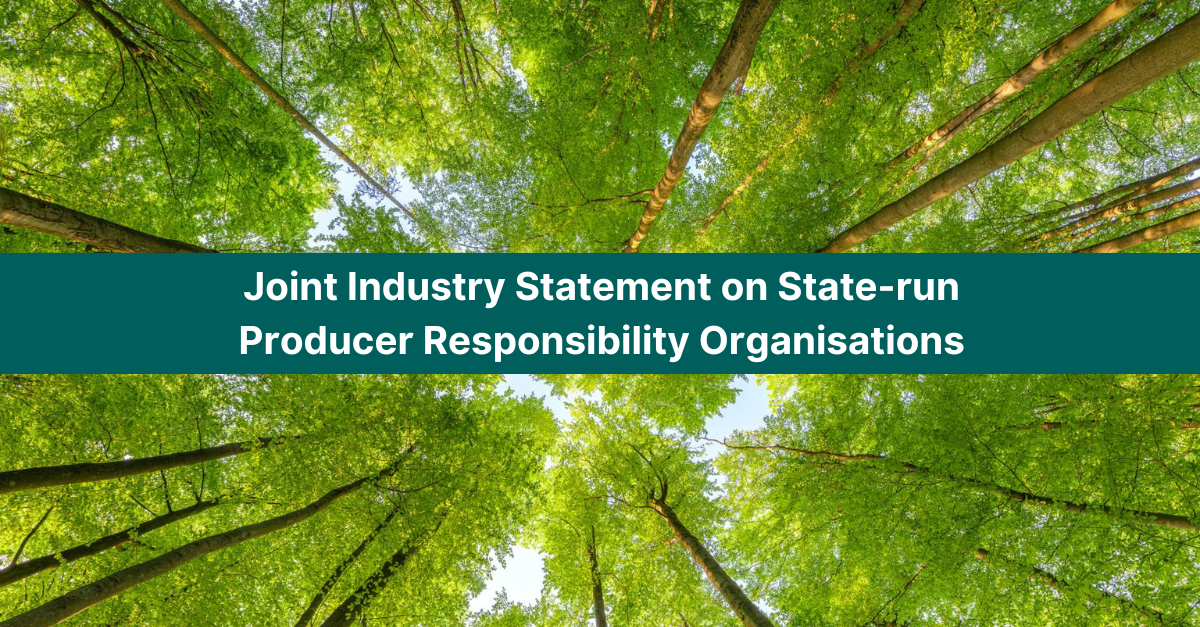Joint Industry Statement on State-run Producer Responsibility Organisations (PROs)

EDANA is among the 50+ associations that co-signed the statement deploring the recognition of state-run producer responsibility organisations (PROs) in the final text of the revised Waste Framework Directive (WFD), a regrettable precedent also set in the new Packaging and Packaging Waste Regulation and Batteries Regulation..png?width=800&height=418&name=Joint%20Statement%20on%20PROs%20(1).png)
Brussels, 15th of May 2025 - EDANA is among the 50+ associations that co-signed the statement deploring the recognition of state-run producer responsibility organisations (PROs) in the final text of the revised Waste Framework Directive (WFD), a regrettable precedent also set in the new Packaging and Packaging Waste Regulation and Batteries Regulation.
In our experience, state-run PROs fail to exercise the core function of a PRO, which is to fulfil
producers’ responsibilities to meet recycling targets on their behalf. Assigning producers’
responsibilities to state-owned operators is a paradox. It will also harm PROs’ effectiveness, worsen
transparency and increase administrative costs, at the detriment of investments in municipal waste
collection, sorting and recycling. Extended Producer Responsibility (EPR) fees charged by state-owned
PROs are almost always a form of taxation, where the money collected from producers becomes
another source of revenue for state budgets, without any guarantee of being used for the purpose of
waste management, in line with the polluter pays principle. In fact, they cannot be considered EPR as
intended by the Waste Framework Directive if they contradict the general minimum requirements for
EPR schemes set in Article 8a of this Directive.
Recognising the possibility for Member States to switch from private to state-run PROs can reverse
progress made thanks to the 2018 revisions of the Waste Framework Directive and Packaging and
Packaging Waste Directive, which made EPR schemes for household and commercial/industrial
packaging mandatory in all Member States. At a time where two-thirds of Member States are expected
to miss their 2025 packaging recycling targets[1], there is an urgent need for governments to
demonstrate that they are serious about the transition to a circular economy. To ensure their
effectiveness, all PROs must meet the minimum requirements set down in Article 8a.3 of the WFD and
they must work for or on behalf of producers. Hungary and Croatia have already chosen to by-pass
producer responsibility, worsening their recycling performance[2]. Poland is next in line, as it is in the
process of modifying its national laws to repeal the existing PROs system to adopt a state-run one.
Undermining separate collection, sorting and recycling will have tangible impacts on the environment,
on businesses and consumers. Recycling rates will decrease instead of increasing. Producers will not
be put in a position to meet the recyclability at scale obligations mandated by the Packaging and
Packaging Waste Regulation, which could lead to potential market bans for certain types of packaging.
This will affect the cost and availability of consumer products.
The signatory organisations therefore call on EU legislators to adopt new legislative measures, in
the context of the upcoming Circular Economy Act, to prohibit state-run PROs and rule out the
possibility for exemptions from the minimum requirements for PROs. We also call on the European
Commission to urgently address the risk of a state-run PRO being established in Poland, by initiating a
dialogue with the Polish government on the EPR law under discussion at national level.
Read the full statement here.
[1] See COM/2023/304 final and the Infringement Package from July 2024, here.
[2] See, as a reference, the data for Hungary, available here. According to EUROSTAT data, Hungary’s packaging recycling rate was 42.4% in 2022, well below the EU average of 65.4%.